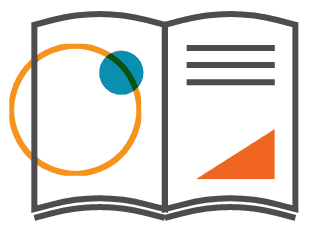Self-directed investing offers extensive opportunities for your tax-advantaged accounts by placing the full power of diversification in your hands. Real estate, private equity, and other alternative investment options are all available to your IRA, 401(k), or Health Savings Account. Within this investment space lies a specific approach that provides even greater flexibility: the Checkbook IRA.
Ready to open a Checkbook IRA? Click here to begin our simple online new account application and get started in a matter of minutes!
What is a Checkbook IRA?
A Checkbook IRA is not a distinct type of account the way Traditional IRA, Roth IRA, and others are. Rather, the term “checkbook” is an industry term to designate an account that provides “checkbook control” to the account holder.
Checkbook control means you can directly fund new investments that are “owned” by a business entity. The business entity (e.g. an LLC) is further “owned” by your self-directed account. With this account structure you can personally execute investment activities without coordinating each one through your account custodian (NDTCO).
To exercise checkbook control in an account, the holder must:
- Open a new self-directed account and fund it via contribution, transfer, or rollover. You can also adopt checkbook control with an existing account.
- Establish a business entity as an asset in your self-directed plan and fund the entity with your tax-advantaged money.
- Name yourself as manager of the entity and create a checking account for it. Your tax-advantaged money will go into this checking account, which you, as the entity’s manager, can access directly.
Hands-On Investing
Why would an investor choose a Checkbook IRA? Let’s use an example of purchasing investment property to illustrate. You would determine the terms of the purchase and generate the real estate contract. However, without checkbook control, the contract would need to come to NDTCO and we would need to issue your account funds to execute the transaction. Thereafter, any expenses incurred by the property would have to be paid by the account and coordinated through NDTCO as well.
On the other hand, a Checkbook IRA would enable you to perform these activities yourself. Once your account-owned business entity is funded and you’ve taken checkbook control, you would be able to fund the investment and pay future expenses without having to coordinate with NDTCO.
Know and Follow the Checkbook IRA Rules
This increased level of control over your investments may seem enticing, but it’s critically important to understand and follow the IRS rules. Prohibited transactions and self-dealing rules still apply; you must maintain arm’s-length distance between yourself and your tax-advantaged assets, even with a hands-on approach.
Your personal money and your tax-advantaged money must never comingle. If you receive a payment for your account-owned rental property, this money must go back to the account-owned business entity. You may not retain such money on a personal basis, use your personal money to cover property expenses, or use the property for personal use.
Because checkbook control brings you closer to the operations surrounding your investments, prohibited transactions can be more difficult to distinguish and avoid. Furthermore, because NDTCO wouldn’t be directly involved in your transactions, we wouldn’t be there to watch for prohibited activities.
With these cautions in mind, a Checkbook IRA may be appropriate if your financial strategy warrants a heightened degree of participation. Like other investments, due diligence, risk tolerance, and a thorough understanding of the applicable rules can help guide your investment path.
Stay in Touch
If you ever have questions or concerns about the permissibility of a prospective investment action, please don’t hesitate to contact us by sending us a secure message via the Client Portal or give us a call at 877-742-1270.


 Back to Blog
Back to Blog

